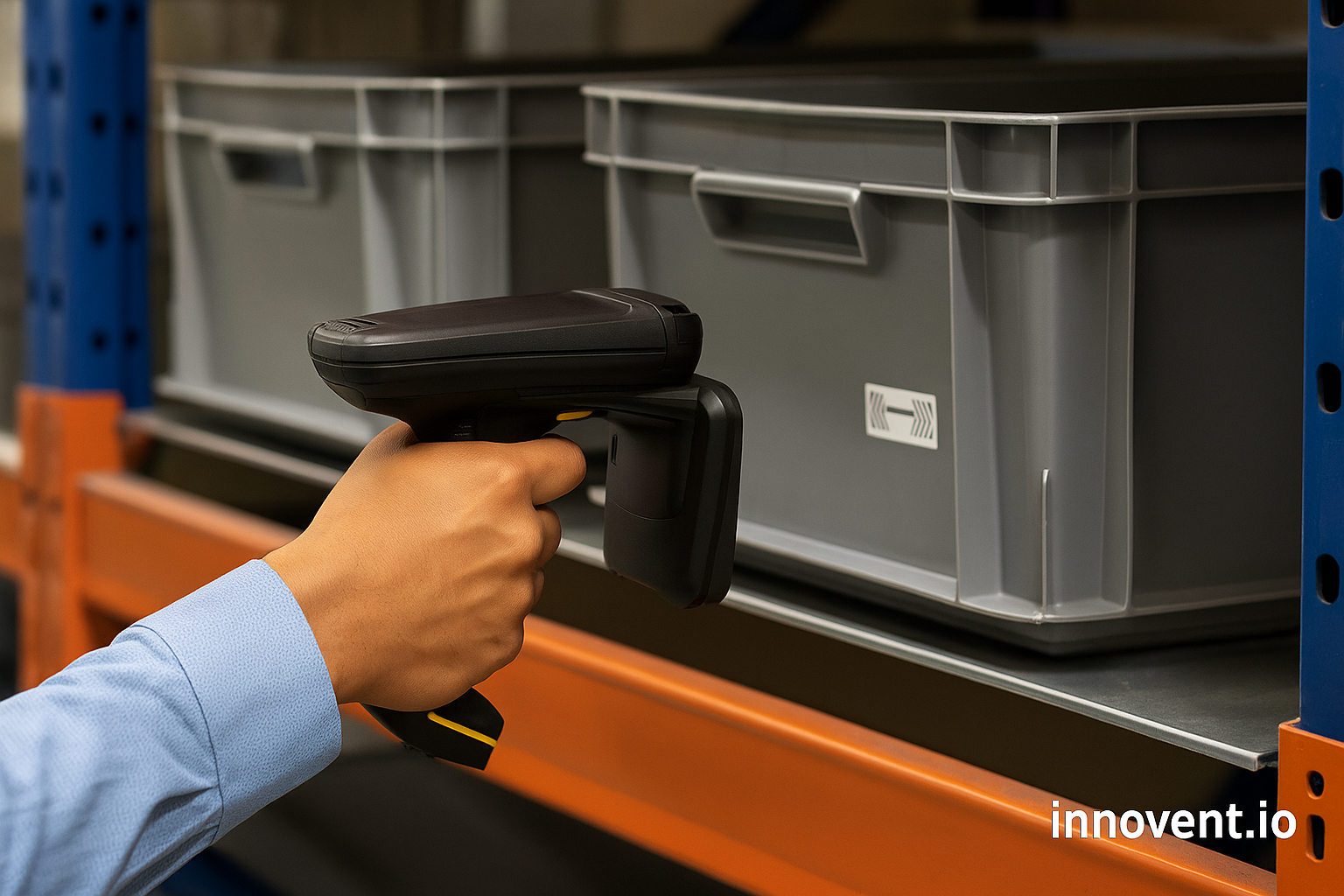Walk into any major shopping mall in Dubai during weekend rush hours, and you'll witness something incredible. Thousands of shoppers moving through stores, cash registers ringing non-stop, and inventory flying off shelves. But behind this retail success story lies a hidden challenge that costs UAE retailers millions of dirhams annually.
The challenge isn't just about someone walking out with unpaid merchandise. It's about the invisible losses that happen when no one is watching. The administrative errors, the supplier discrepancies, the damaged goods, and the process failures that slowly drain profits from even the most successful retail operations.

The Real Numbers Behind UAE Retail Losses
The UAE retail market is massive and growing fast. UAE retail market size was valued at USD 145.3 Billion in 2024, expected to reach USD 227.1 Billion at a CAGR of 5.1% during 2025-2033. Converting to AED, this represents a market worth over AED 530 billion today.
Now here's the sobering part. The average inventory shrink rate in the U.S. is 1.62%. If we apply similar shrinkage rates to the UAE market, retailers could be losing over AED 8.5 billion annually to inventory shrinkage. That's not a typo. Billions with a B.
But here's what most business owners don't understand: theft isn't the biggest culprit. Multiple industry studies show that shoplifting and employee theft combined account for less than 50% of total retail losses. The majority comes from operational issues that happen behind the scenes.
Think about your last inventory count. How many discrepancies did you find? How many of those could you actually explain? Most retailers discover gaps they never saw coming.
Beyond Theft: The Hidden Profit Killers
Here's a real scenario that plays out daily across UAE retail stores. During peak shopping hours, a cashier processes hundreds of transactions. One customer returns an item, but the return gets processed incorrectly in the system. The item shows as returned, but the inventory count doesn't update properly. Small mistake, but multiply this across dozens of transactions daily.
According to retail industry research, administrative errors account for roughly 20-25% of total retail shrinkage. In the UAE's fast-paced retail environment, where stores often operate with multilingual staff and high transaction volumes, these errors become more frequent. The most common issues include incorrect pricing at checkout, mishandled returns and exchanges, inventory counting mistakes, data entry errors in receiving, and discount processing errors.
Then there's the supplier challenge. You order 100 units of a product, your supplier invoice shows 100 units, but only 97 actually arrive. Without proper tracking systems, this discrepancy goes unnoticed until your next inventory count. By then, you've already sold products you thought you had, creating phantom inventory. In the UAE's complex supply chain environment, where products flow in from dozens of countries, these discrepancies are more common than most retailers realize.
The UAE's climate presents unique challenges too. Extreme summer temperatures can damage products during transport or storage. Electronics can malfunction, food items can spoil, and textiles can deteriorate if not properly stored. Research indicates that some retailers experience over 50% unknown shrinkage, with issues like food waste adding significant challenges. For UAE retailers, particularly those dealing with temperature-sensitive products, damage and spoilage can account for 15-20% of total losses.
The Technology Revolution in Loss Prevention
Modern loss prevention isn't about hiring more security guards or installing additional cameras. It's about implementing intelligent systems that identify and prevent losses before they impact your bottom line.
The statistics are compelling. Loss prevention technologies help reduce shrinkage by up to 30%. For a UAE retailer with annual revenues of AED 10 million, a 30% reduction in shrinkage could save over AED 250,000 annually.
RFID technology has emerged as a game-changer for UAE retailers. Unlike traditional barcode systems that require line-of-sight scanning, RFID tags can be read automatically and provide real-time visibility into inventory movement. The technology offers real-time inventory tracking where every tagged item is monitored from the moment it enters your store until it's sold. This eliminates the guesswork and provides accurate, up-to-date inventory counts.
RFID systems can automatically flag when inventory numbers don't match expected levels, allowing retailers to investigate and resolve issues immediately rather than waiting for the next inventory count. The technology provides detailed insights into where losses occur most frequently, enabling retailers to focus their attention on the highest-impact areas. These systems can start small and expand as your business grows, making them practical for everything from single-location boutiques to multi-store chains.
A recent case study from a luxury retail chain demonstrates the impact. After implementing RFID tracking across all locations, they discovered that 60% of their losses were occurring during the receiving process. Products were being marked as received in their system when they never actually arrived. This wasn't theft or fraud; it was a systematic process flaw that had been costing them thousands of dirhams monthly. Research shows that technology plays a crucial role in modern inventory loss prevention strategies, with 44% of retailers increasing their use of advanced security technologies specifically to address these operational challenges.
Why UAE Retailers Have a Competitive Edge
The UAE's retail sector is uniquely positioned to benefit from advanced loss prevention strategies. With the market growing at 5.1% annually and reaching over AED 530 billion, the scale of potential savings is substantial.
Several factors make loss prevention particularly critical for UAE retailers. The market includes significant luxury and high-value segments where electronics, jewelry, designer fashion, and premium goods require more sophisticated protection than traditional security measures can provide. The UAE attracts millions of international visitors annually, creating high-volume foot traffic from unfamiliar customers that brings both opportunities and challenges for loss prevention.
Retail operations often employ multilingual staff with varying experience levels. Technology-supported processes help ensure consistency and accuracy across different teams and locations. UAE retail businesses are expanding quickly, and traditional manual processes that work for small operations become inadequate as businesses scale. Automated systems provide the foundation for sustainable growth.
The supply chain complexity is another factor. UAE retailers often source products from multiple international suppliers, increasing the risk of discrepancies and requiring sophisticated tracking systems. This complexity, combined with the region's focus on innovation and technology adoption, makes comprehensive loss prevention not just beneficial but essential for competitive advantage.
The Bottom Line
Loss prevention in the UAE retail market isn't about turning your store into a high-security facility. It's about implementing intelligent systems that protect your profits while maintaining the shopping experience your customers expect.
The numbers don't lie. With UAE retail shrinkage potentially costing billions annually, and technology solutions capable of reducing losses by up to 30%, the return on investment is clear. A retailer with AED 10 million in annual revenue could save over AED 250,000 yearly through effective loss prevention measures.
The real question isn't whether you can afford to invest in modern loss prevention technology. In today's competitive UAE retail environment, where margins are tight and growth is essential, the question is whether you can afford not to. The retailers who recognize this reality and act on it will be the ones who thrive in the years ahead.
Sources and References
- National Retail Federation - 2024 Retail Security Survey: https://nrf.com/research/2024-retail-security-survey
- Research and Markets - UAE Retail Market Size Report 2024: https://www.researchandmarkets.com/reports/5895234/uae-retail-market-size-share-trends-analysis









